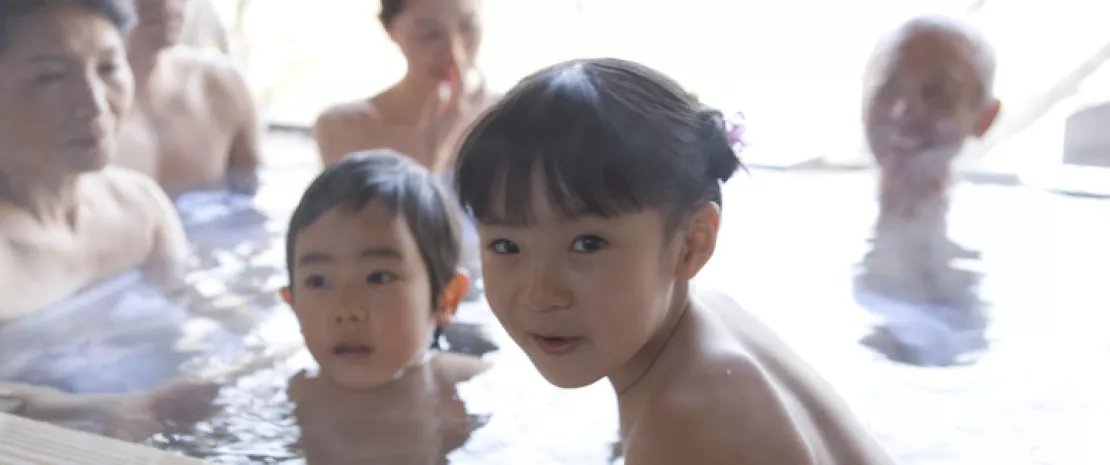In Japan, families share their microbiota in the bath!
Sharing bathtub water is a singular but deep-rooted tradition in the land of the rising sun. It could favor bacterial exchanges between household members and play a part in the development of a “family microbiota” with many common features.
- Learn all about microbiota
- Microbiota and related conditions
- Act on your microbiota
- Publications
- About the Institute
Healthcare professionals section
Find here your dedicated section
Sources
This article is based on scientific information

About this article
Environmental factors such as diet, contact with maternal microorganisms (from the vagina and skin) during labor or in the first moments of life, play a key role in the development of the gut microbiota from birth, and later in its composition throughout life. And some of them can very surprising!
In Japan, families take baths together!
One of these factors is the sharing of bacteria within the household: each home hosts its own bacterial ecosystem, mainly forged by the members of the family. This is even more so in Japan, where sharing baths is a common practice which is not exclusively related to hygiene: it is above all a relaxation ritual that helps strengthen family ties across generations. According to tradition, parents and children have to clean themselves with soap and rinse before taking a bath, either together, or one after the other. They thus enter the bathtub clean, and the water, which is free of bacteria at the start, is used by all participants. It successively gathers part of their gut bacteria–especially bifidobacteria which are found in higher proportion in Japanese people.
Exchange of bacteria
Some bacteria do not resist to the heat of the water or prolonged immersion (during one or more hours). But the analyses conducted in 5 Japanese households–21 persons in total–concluded that about 10% of microorganisms identified in the bath water and in the participants’ gut microbiota were the same. As an additional finding, the composition of gut microbiota is more similar between family members who take baths together. Researchers concluded that, just like mother-to-child transmission of bacteria, shared bath water is a two-way environmental driver of gut flora colonization.
Sources:
Odamaki T, Bottacini F, Mitsuyama En et al. Impact of a bathing tradition on shared gut microbe among Japanese families. Nature. Scientific Reports (2019) 9:4380










